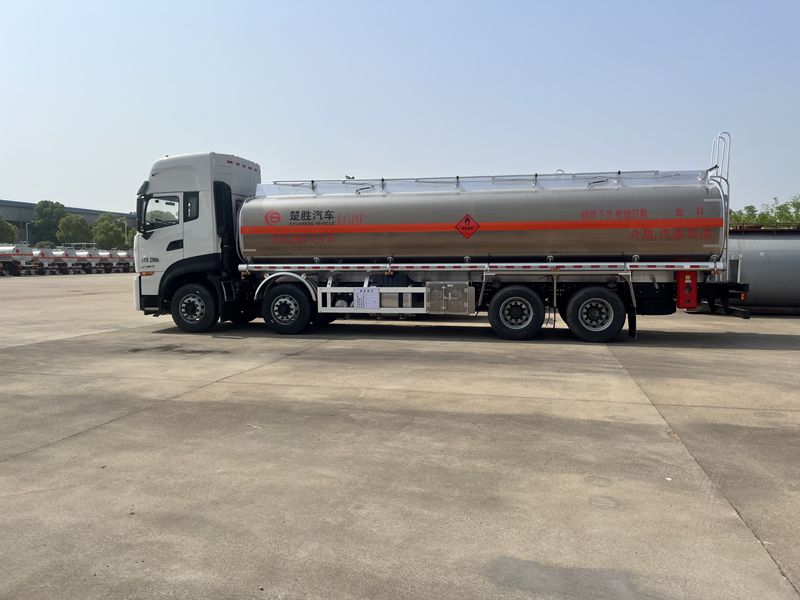Critical Role in Energy Access for Remote Communities
In remote and rural areas, oil tanker trucks are lifelines that ensure consistent access to fuel for transportation, heating, and power generation. In Canada’s northern territories, where road infrastructure is limited, specialized oil tanker trucks with reinforced tires and cold-weather insulation deliver diesel to remote communities and mining operations. These trucks navigate icy roads and extreme temperatures as low as -40°C, relying on heated fuel lines and engine block heaters to keep operations running year-round.
In sub-Saharan Africa, oil tanker trucks support rural development by delivering fuel to small-scale farmers, who use it to power irrigation pumps and generators. In Kenya’s Rift Valley, a network of community-owned oil tanker trucks ensures that fuel reaches even isolated villages, reducing reliance on expensive, informal fuel suppliers. “Before the tanker trucks started coming regularly, we paid 30% more for fuel, and it was often contaminated,” says a rural farmer. “Now we have reliable access, which has doubled our crop yields.”
Oil tanker trucks also play a vital role in disaster response, delivering emergency fuel to hospitals, shelters, and relief operations after natural disasters. During Hurricane Katrina in 2005 and the 2011 Tohoku earthquake in Japan, fleets of oil tanker trucks were mobilized to restore energy access in affected areas, proving their importance in crisis scenarios.

Smart Logistics: Tech-Driven Efficiency in Fuel Distribution
Digitalization is revolutionizing oil tanker operations, with smart technologies optimizing routes, maintenance, and fuel tracking. In Singapore, a leading fuel hub, oil tanker trucks are equipped with IoT (Internet of Things) sensors that monitor tank levels, fuel quality, and vehicle performance in real time. This data is transmitted to a central platform, allowing dispatchers to plan routes that minimize empty backhauls and reduce fuel waste. The system has improved delivery efficiency by 25% and cut operational costs by 18%.
Predictive maintenance is another tech innovation transforming the industry. Sensors on oil tanker trucks monitor engine health, tire pressure, and brake wear, alerting maintenance teams to potential issues before they cause breakdowns. In Australia, a major logistics company reports that predictive maintenance has reduced unplanned downtime by 50%, ensuring more reliable fuel deliveries to remote mining sites.
Blockchain technology is also being tested to enhance transparency in fuel distribution. In India, a pilot program uses blockchain to track fuel from refinery to tanker truck to gas station, preventing fraud and ensuring fuel quality. Each truck is fitted with a digital tracker that records every transfer, creating an immutable ledger that regulators and customers can access.
Challenges in Emerging Markets: Infrastructure and Regulation
While innovations thrive in developed markets, oil tanker trucks in emerging economies face unique challenges related to infrastructure and regulation. In parts of Southeast Asia, aging tanker fleets with outdated safety features are common, increasing the risk of spills and accidents. In Indonesia, for example, only 30% of oil tanker trucks meet international safety standards, according to a 2024 report by the Asian Development Bank.
Poor road conditions in many rural areas also pose challenges. In Brazil’s Amazon region, oil tanker trucks must navigate unpaved roads that become impassable during the rainy season, delaying fuel deliveries to remote communities. To address this, local governments are partnering with logistics companies to upgrade key routes and deploy off-road-capable tanker trucks with 4x4 systems.
Regulatory inconsistencies across borders further complicate cross-border fuel transport. In Africa, where fuel is often imported across multiple countries, varying safety standards and documentation requirements slow down deliveries. Regional initiatives, such as the East African Community’s harmonized transport regulations, are working to streamline these processes, reducing border delays by up to 40% for oil tanker trucks.

